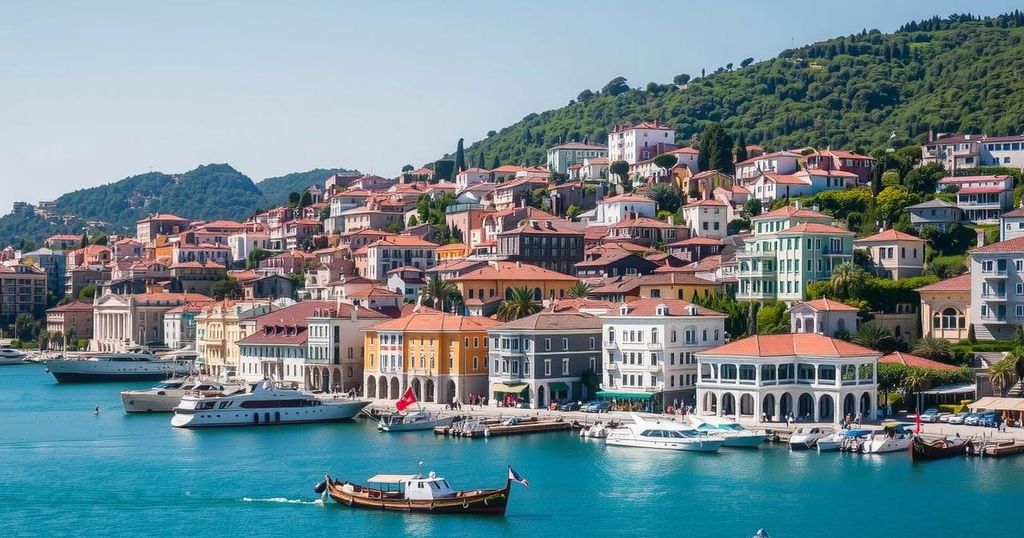Lebanon’s Future: Opportunities Amid the Weakening of Hezbollah and Regional Powers

Lebanon is at a critical juncture following Joseph Aoun’s election as president, with the weakening of Hezbollah and its regional allies presenting an opportunity for reform. Aoun faces the arduous task of restoring national stability and disarming Hezbollah, amid pressures from political elites resistant to change. His commitment to neutral policies and better relations with Arab nations may pave the way for Lebanon’s renewal, contingent on significant political and strategic shifts.
Lebanon’s trajectory towards stability may significantly alter as regional powers, particularly Hezbollah, Syria, and Iran, undergo considerable weakening. With the election of Joseph Aoun as president, the Lebanese polity faces a crucial juncture, prompting inquiries into whether Aoun will be an agent of substantial change akin to former President Fouad Chehab or merely a caretaker of the entrenched political elites.
Historically, Lebanon’s internal and external dynamics have oscillated, rendering periods of peace elusive as various factions vie for power. This week’s election was influenced by the diminished capacities of Hezbollah after recent military defeats and the declining influence of Iran, coupled with the weakening regime of Bashar Assad in Syria. This confluence of factors has enabled a parliamentary consensus to emerge, paving the way for a new leadership.
President Aoun’s immediate challenges are profound; he must navigate extensive expectations to restore national institutions and address socioeconomic crises exacerbated by years of misgovernance. Notably, his ability to counter the legitimization of Hezbollah’s arms and fortify Lebanese sovereignty is critical for enduring reform. Hezbollah’s acknowledgement of Aoun’s appointment signals a shift in its political leverage amid regional upheavals, casting doubt on its hegemony.
As the Lebanese military expands its presence in the south post-ceasefire with Israel, Aoun faces the formidable task of persuading Hezbollah to disarm, a move that would signify the dissolution of its quasi-state status. The political landscape remains fragile, balancing the interests of both reformists and those seeking to preserve the entrenched elite amid looming geopolitical influences.
Aoun’s commitment to a policy of neutrality and improved relations with historically estranged Arab nations reflects potential reforms. However, viability rests on whether he can implement changes required to restore public confidence and essentially reshape Lebanon’s political frameworks. His approach will be scrutinized, particularly in the composition of his government and pivotal security appointments that will influence the forthcoming parliamentary elections.
In the background, the international community—especially nations like the United States, France, and the Gulf States—has shown support for Aoun’s presidency, indicating potential avenues for Lebanese reintegration into the regional fabric. However, persistent pressures from Iran and Hezbollah’s entrenched military capabilities pose significant barriers to achieving a sovereign and prosperous Lebanon. The ensuing months are crucial for evaluating Aoun’s ability to realize his vision for national rejuvenation and sustainable stability.
Lebanon’s political landscape has historically been dominated by multifaceted communal tensions and external influences, making it susceptible to upheavals driven by regional conflicts and the interests of foreign powers. The country’s stability has oscillated under the weight of various factions vying for control, notably Hezbollah, which has been closely allied with Iran. The recent electoral developments amidst regional shifts may present Lebanon with a rare opportunity to recalibrate its political framework—if the new leadership can navigate entrenched political interests and external pressures effectively. The backdrop of weakened Hezbollah and the Assad regime, coupled with changing regional sentiments post-conflict, has created a potential for diplomatic and political recalibration within Lebanon. Understanding the dynamics of these changes is crucial for grasping the potential paths Lebanon could undertake moving forward.
The election of Joseph Aoun presents Lebanon with a pivotal opportunity to redefine its political landscape, particularly in light of the weakening of Hezbollah and its foreign backers. While Aoun’s commitment to restoring peace and stability is laudable, his ability to enforce disarmament and reshape Lebanon’s governance against the backdrop of enduring political corruption will be a significant test. The success of this endeavor hinges on collaborative efforts from both domestic and international stakeholders to support Lebanon’s pursuit of sovereignty and reform in its current tumultuous environment.
Original Source: www.arabnews.com








